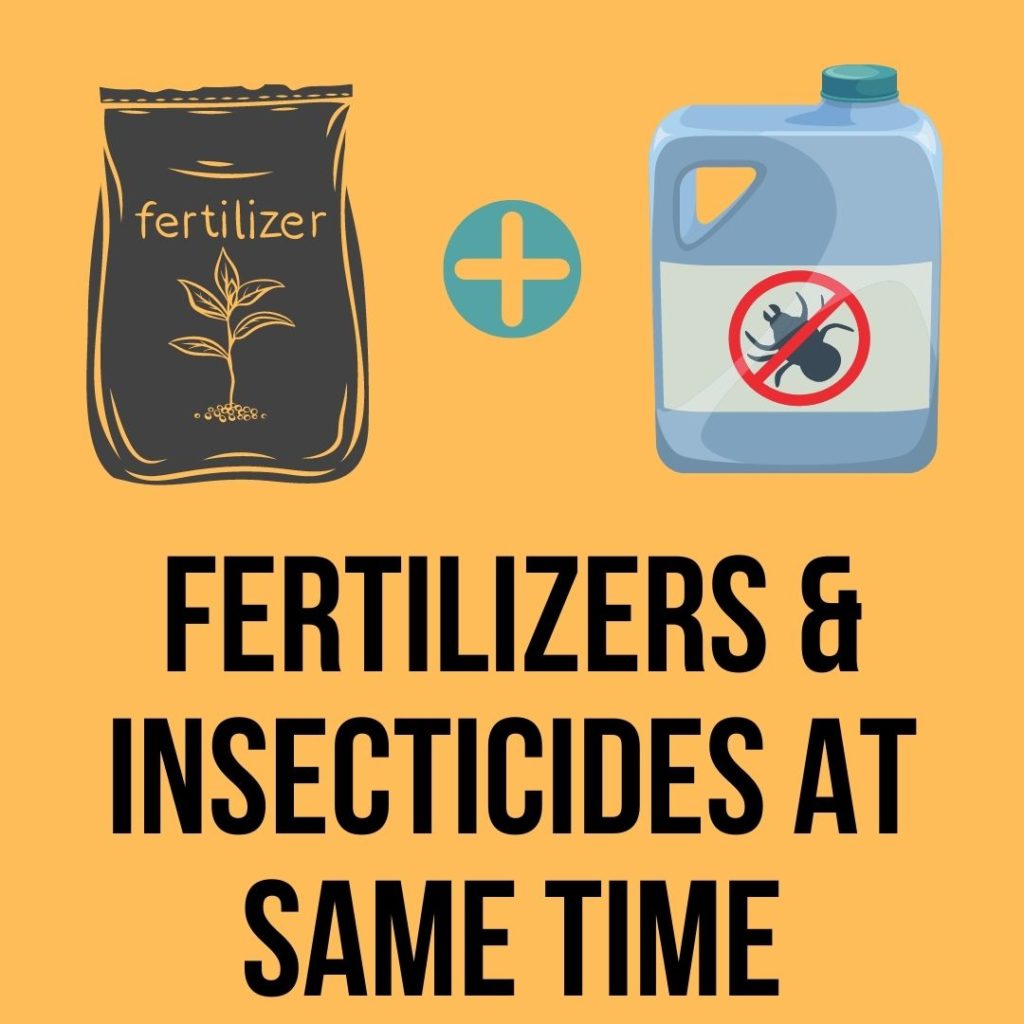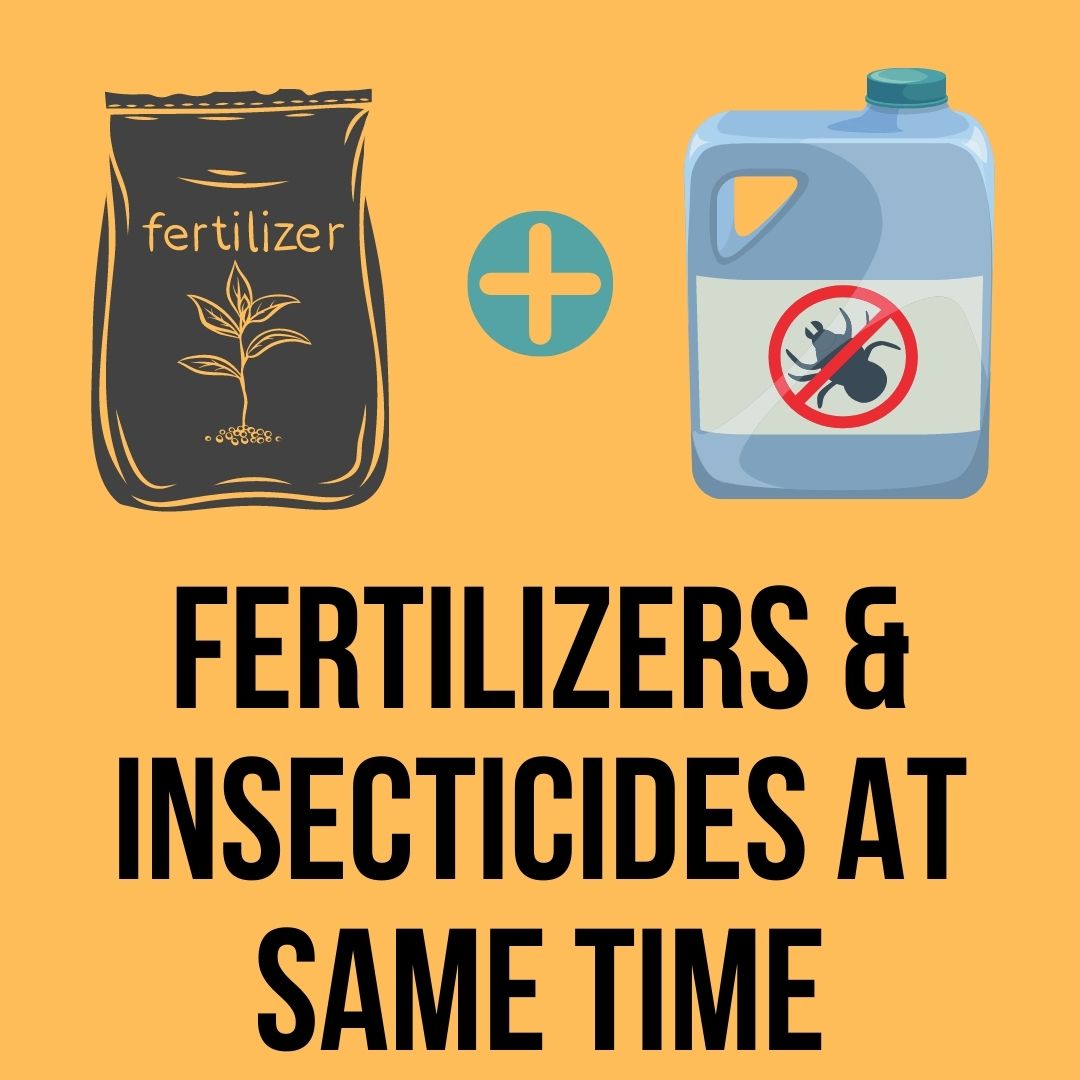The majority of plant farmers seem to be perplexed when it comes to the application of insecticides and fertilizers. They are quite often perceived to be caught in a bind when it comes to this application. An often asked question is whether it is possible to apply pesticide and fertilizer to one’s lawn at about the same time or if it is not.
This post will help to clear the misconception in a courteous manner.
Indeed, it is possible to apply insecticides and fertilizers together.
Maintaining adequate treatment of your grassland is essential to ensuring that your lawn thrives and looks beautiful. In addition to fertilizing on a routine basis, trimming your grasses, and oxygenating, if you’ve had difficulties with fungal diseases or if suffered from insects in the past, you should apply a fungicide or insecticide to your lawn.
It is a common question among horticulturalists if it is possible to introduce insecticides and fertilizer around the same time.
A brief overview:
Insecticides and fertilizers are consistent with one another and may thus be used in conjunction with each other. In practice, you should just use these items in combination with one another if both of them need watering into your grass at the same time.
Examine which fertilizers and insecticides may be applied in conjunction with one another.
Fungicides and fertilizers can be used in coordination to boost the topsoil components as well as the quality of the plant. To utilize these items at the same time, you will have to use substances that are comparable but do not require watering in.
Orientation:
The majority of fertilizers need water to activation them and rinse them through into the earth, where they may then be used to nourish the grass. The insecticide, on the other hand, is intended to be sprayed on plantings in order to kill the pests and insects and diseases carried by them on the blades of grass. The clippings of grass should never be rinsed down the drain with fluid insecticides, as they will get infected.
While some insecticides are available in form of particles that must be washed in, others are available as liquids that may be applied at almost the same time as fertilizer. Load both the particulate insecticides and the fertilizers into a sprayer and you may be ready to use both at the same time.
The increased efficiency comes from just needing to spray your grass once instead of several times. If you’re intending to use fungus or insecticides and fertilizers combined, be sure to check the labels to make sure they may both be administered in the same manner.

Various kinds of insecticides and fertilizers:
There are several kinds of fertilizer marketed, and you might just be unsure of which one is the ideal to be applied on your grass given the variety of options.
It’s ideal to apply a non-burning fertilizer with high nitrogen content, since they encourage growing conditions, brighten your yard, and are suitable for all agricultural crops, including Bermuda grass.
It is preferable to choose a lawn starting fertilizer while applying a fungicide-containing fertilizer. Because they have been carefully prepared for fresh sod and grass seedlings, these substances are friendlier on grass.
They may also be used in the association alongside both insecticides and fungicides to provide good results.
Insecticides that can not be used in accordance with Fertilizer:
The majority of liquid pesticides cannot be used with fertilizer since they do not need irrigation. If you use a saturated mixture of liquid, you must spray the fertilizer and pesticide individually at a minimum interval of three days.
If feasible, schedule one or two weeks between pesticide and fertilizer applications on your grass. Typically, nutritional deficits cause the grass to become yellow or brown, which is mostly misinterpreted as a fungal illness.
It’s wise to input fertilizer into your lawn initially and observe whether your grass flourishes. You may notice when your grass brightens up and seems nutritious, which in that case no pesticide is required.
Because of the way liquid copper insecticides are applied, using them at the same period as fertilizer is not suggested. The copper insecticide should always be kept on for at least twelve hours from applying and should therefore be sprayed in dry circumstances in the majority of situations.
This implies that it cannot be used in combination with a fertilizer which has to be watered in to be effective. Apply the pesticide first, but then just pause three days before spraying the fertilizer, instead of just putting the items all together at the same period.
Is it possible to combine pesticides with fertilizer?
To treat both infection and insects at the very same time, barrel mixes might include both fungicide and insecticides in the same container.
Most of the time it is necessary to combine a pesticide with fertilizer, or to combine two herbicides to maximize agronomic effectiveness. Nonetheless, except specifically forbidden by the label of a pesticide, combining is permitted.
Is it possible to spray and fertilize simultaneously?
After spraying pesticides on the weeds, it’s necessary to fertilize your grass. In just about all circumstances, fertilizer should be applied at the start of the growing cycle.
This additional water might help remove the fertilizer, resulting in the contaminants ending up in your potable water.
Can I fertilize immediately after using pre-adaptation?
In the springtime, use a pre-emergent herbicide and fertilizer concurrently to jumpstart your grass. Either pre-emergent or fertilizer is beneficial when soaked into the ground.
Should pesticides be combined with insecticide?
Mixing insecticides and fungicides in almost the same application is feasible, and you should also carefully understand the labeling of the product and/or perform a combined test.
How shortly after using fortitude can I fertilize?
We propose an interval of 2-4 weeks following herbicide and fertilizer treatments to prevent overstressing the irrigated regions.
Is it possible to apply fungicide and insecticide concurrently?
Combining some fungicides and insecticides potentially reduces their efficiency. Whenever working with the merged combination, use protective gear and safety glasses, since they might be more harmful when compounded than when used alone.
How can you tell that two or more insecticides will work well together in a septic blend?
Having used a “jar test” to assess physical stability when barrel combining two or more compounds or pesticide-fertilizer mixtures. Tank blending two or more pesticides or fertilizers is most often applied to improve efficacy, conserve effort, and reduce costs.
Is rain effective at removing pesticides?
A common scenario of thumb is that a single inch of rain eliminates around 50% of the waterproof coating fungicide residual and that more than two inches of rain dissolve the majority of the spray material.
Thank you for your valuable time to read this post.
Conclusion
When applying insecticides and fertilizers at about the same time, it is recommended to use particulate treatments rather than liquid ones. Using a splitter, you may apply them to your grass once they have been blended. They’ll also need to be washed down in order for the key components to be activated.
Applying fungicides and fertilizers independently is advised if you’ve had an insecticide or fertilizer which does not need watering or if you wish to apply liquid insecticide. To distribute fertilizer, you must consider waiting for a minimum of three days afterward applying the components.
It’s also possible to limit the risk that your lawn will get infected with a fungal infestation by taking some precautions. The use of a delayed or slow-release fertilizer on a daily basis will assist to increase the health of the grasses and make them more resistant to pest disease. Additionally, water, oxygenate, and dethatch your grass on a regular basis to make sure the infection is from spreading.
